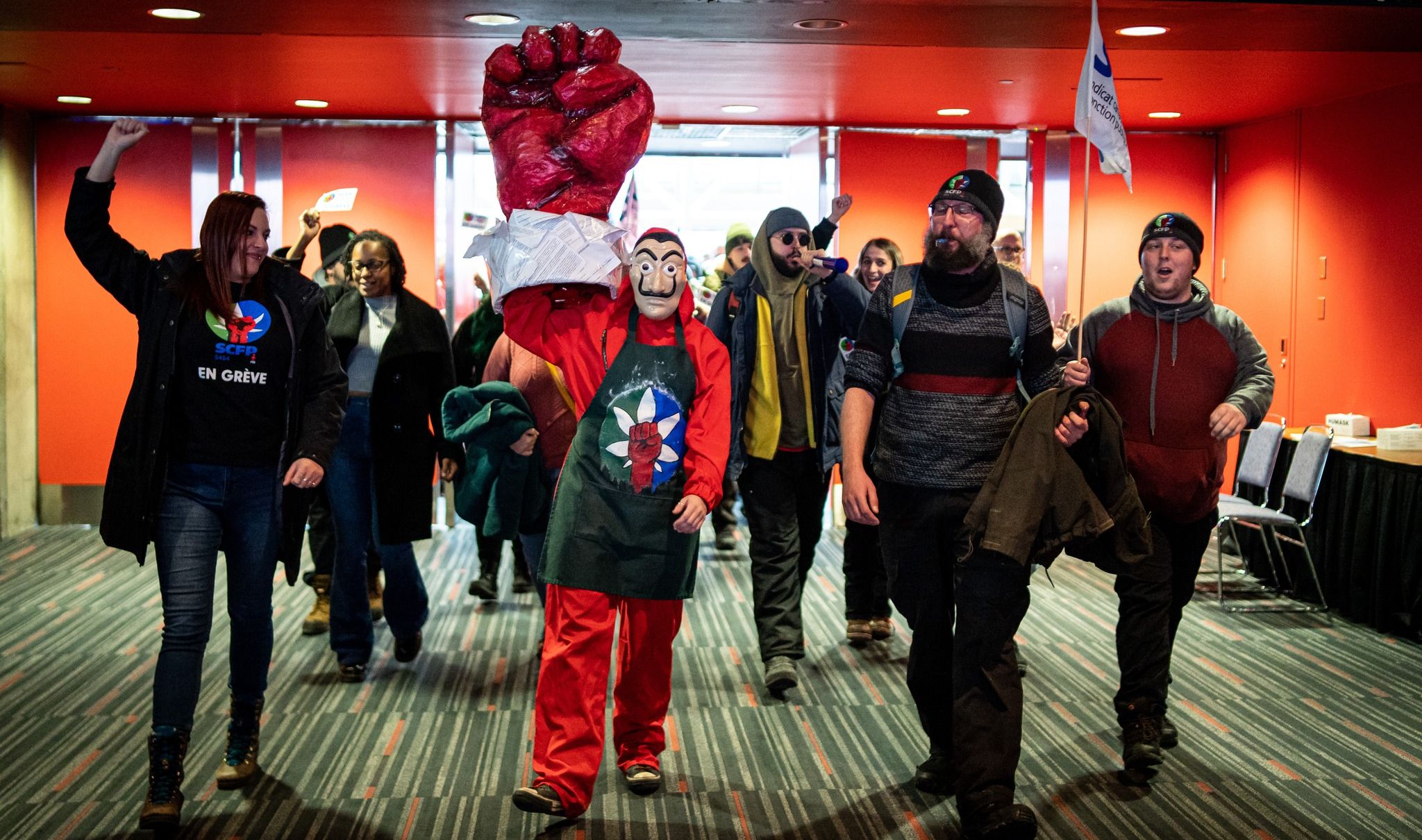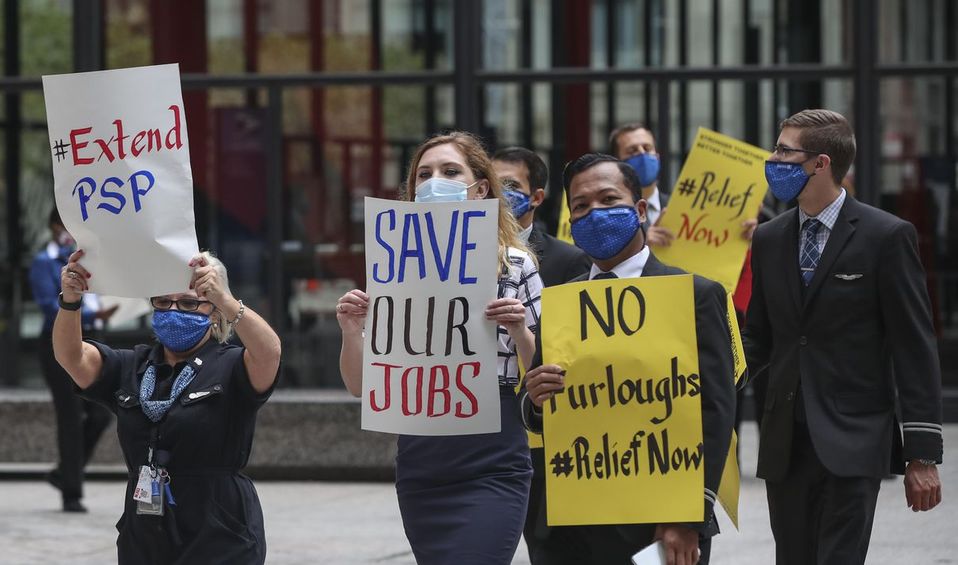The Bank of Canada jacked up interest rates again to 4.5 percent. In less than a year the Bank has raised rates eight times from 0.25 percent, causing misery to millions with higher rent mortgages and debt charges. These actions make a recession, with higher unemployment, more likely. This article, written in late January, first appeared in the February issue of Socialist Alternative.
Chicken breasts $27 a kilo! Food prices are up 11 percent in the last year, and it is even worse for some basics: edible oils, pasta and flour are all up over 21 percent, butter 17.8 percent and vegetables 13.7 percent.
Canadians face hard choices when food shopping. A recent Ipsos poll found that 53 percent worry they “might not have enough money to feed their families.” Over 6 million Canadians rely on charitable food programs, double that of three years ago. This year will be worse with 22 percent of Canadians (and 35 percent of young adults) expecting to need charities to meet essential needs. Food banks are overstretched.
Most other essentials are also up in price. Recent headlines have pointed to a drop in the rate of inflation; however, the cost of living is still going up, only a bit slower.
Bank of Canada Makes Things Worse
The Bank of Canada has jacked up interest rates in response to the soaring cost of living. After promising low interest rates for years, the Bank abruptly reversed course over 2022, raising the interest rate from 0.25 to 4.25 percent — a huge increase. Rather than ease the cost-of-living crisis, this makes it worse, increasing charges on debts, mortgage payments and rents, up over 11 percent since 2021.
Canadians have mountains of debt, as they try to maintain living standards. Total consumer debt climbed to $2.32 trillion in 2022. Non-mortgage debt was $591 billion, averaging $21,128 for each consumer. Household debt is now $1.84 for every $1 of income, the highest ever.
The head of the Bank of Canada, Macklem, is clear he wants workers to pay for the surging cost-of-living crisis that they did not cause. He urged employers not to raise wages that maintain living standards. He didn’t tell corporations to cut their profits and pass this on with lower prices. Clearly, he is on the side of Bay Street and big business.
Raising interest rates will not improve supply chains, end the war in Ukraine, tackle climate change or slash corporate profiteering. The real purpose is to cause a recession in the hope that this will slow inflation. However, it will be at the cost of more misery, due to rising unemployment and risk of mortgage defaults.
Corporate Profits Soaring
Oil companies are making record profits. The cost of producing oil in Canada did not change over the last two years but the prices for consumers soared. This resulted in super-profits for oil and gas companies — up $38 billion, or more than 1,000 percent, since 2019.
While in some sectors profits are down, overall big business is doing well with profits up 30 percent. A report from the Centre for Future Work found that after-tax corporate profits took 17.4 percent of GDP in 2022, the highest share in history.
Chief Executives’ (CEOs) income also soared with the 100 highest paid CEOs receiving an average of $14.3 million in 2021, the largest amount ever, up 31.2 percent from the average of 2020. Not everyone is hit by inflation.
Canada’s big three supermarket chains — Loblaw, Empire (Sobeys) and Metro — continue their profiteering. Food retail profits jumped by 120 percent or $2.8 billion from 2019. Economist Jim Stanford stated that “the supermarkets have made hay on the crisis of the pandemic and everything that’s happened afterward.”
The Empire chain CEO said, “I refuse to apologize for our success.” The “success” of bumper profits comes at the misfortune of millions, suffering reduced living standards and real hunger.
No Help from Politicians
Politicians do nothing about inflation, falsely claiming it is up to the Bank of Canada. They could introduce price controls and a limit on profits, and heavily tax excess profits and soaring wealth and use this to help people struggling with the cost of living.
All agree that supply chain disruptions are a cause of inflation and other problems. The government could act to raise low wages and force employers to provide training to deal with skill shortages. One example is the truck driver shortage, expected to reach 55,000 by 2024. The government could insist on quality training for drivers, clamp down on wage theft and long hours, step up safety inspections on companies and increase the provision of rest areas and services on the road.
Instead, the Liberals do nothing. The Conservative’s new leader, Poilievre, abandoned his embrace of cryptocurrencies (after their dramatic crash), now he wants to slash public spending. This will not tackle inflation but will make life harder for the majority of Canadians who want improved public health, education, and seniors’ care and protection of the environment.
Neither the Liberals nor Tories will tackle corporate profits. But both agree to increase military spending, with billions more on fighter jets, naval vessels (running billons of dollars over budget already) and other expensive equipment. Military spending increases inflation.
Unfortunately, the NDP remains the tail of the Liberal dog, occasionally wagging some criticisms. But it does not put forward a distinct bold program to tackle inflation and Canada’s many other economic woes such as lack of investment in production, the low growth of productivity and soaring inequality.
Workers Not to Blame
Inflation is not caused by workers demanding “excessive wage increases.” Prices have been surging ahead of wages since mid-2020, and workers’ living standards are falling. Companies have record profits and government revenues are up due to inflation: both can afford to pay higher wages. .
Workers need unions that fight to defend living standards. It’s one thing to demand better pay, it’s something else to get it. The Ontario CUPE strike of education workers in 2022 showed the strength and weakness of the unions and the leadership.
Ontario unions threatened a general strike over Doug Ford’s attack on union rights; Ford was forced to back down. However, when it came to delivering a pay raise inline with inflation, CUPE came up short. By calling off the strike the union lost negotiating power. CUPE leaders recommended a pay settlement far below the rate of inflation. A similar below inflation deal was agreed by BC’s public sector unions, without a unified struggle of all workers.
The encouraging feature of the Ontario struggle was the enthusiastic support of workers across the public and private sectors to stand together as well as the 50 percent public support for a general strike. Clearly, the tide of the class struggle, consciousness and labour militancy is turning.
Private sector unions are also stepping up action. Unifor saw 31 strikes during 2021, a new record. However, it’s not just the number of strikes — it’s how they are conducted and what they achieve. A key demand is wage increases above the rate of inflation, best won with a cost-of-living adjustment.
Gaining COLA requires a mobilized membership confident that it has a leadership that both wants to win and knows how to win. Democratic discussion within the union is vital to prepare demands, discuss and decide on actions and tactics, and decide on any settlement. A mass campaign to win a large majority for strike action is vital. If that isn’t enough to force the employer to agree, then a determined strike, including defiance of back to work legislation is the path to victory.
Crucial to ensuring fighting union leaders is they should be regularly elected, be open to recall by the membership and receive the same pay as the workers they represent.
Looming World Recession
Canada and much of the world is heading towards a recession, triggered by the soaring interest rates. The shift from relativity high employment to rising unemployment could be rapid.
This will be the third recession in 15 years. Clearly the capitalist system cannot deliver stability and quality living standards. It is dragging the world to climate disaster, and breeds war, oppression and poverty.
Around the world people are resisting and looking for answers to this rotten system. Socialist Alternative in Canada and our sister organizations in International Socialist Alternative are part of the global struggle to win a better future, a socialist world.



